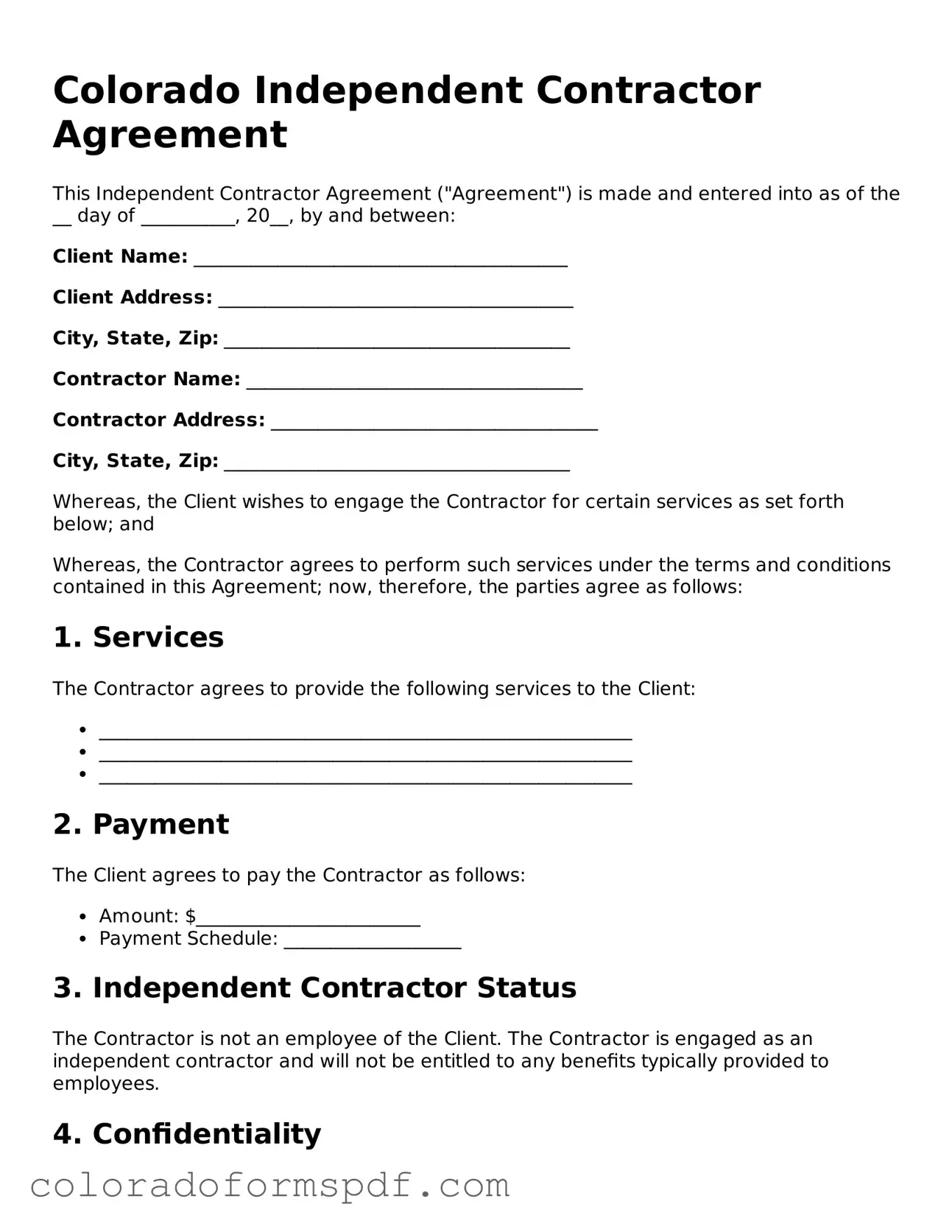Official Independent Contractor Agreement Template for Colorado State
The Colorado Independent Contractor Agreement is a legal document that outlines the terms and conditions between a business and an independent contractor. This agreement is essential for clarifying the nature of the working relationship, including payment terms, responsibilities, and project timelines. Understanding this form can help protect both parties and ensure a smooth collaboration.
Get Document Online

Official Independent Contractor Agreement Template for Colorado State
Get Document Online

Get Document Online
or
Download PDF
Quick form completion starts here
Edit and finish your Independent Contractor Agreement online, then download.